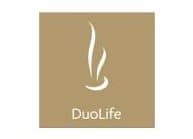
Understanding Menopause
Menopause signifies the conclusion of monthly menstruation, indicating the absence of active follicles containing eggs in the ovaries. This phase is characterized by fluctuations and subsequent decreases in estrogen and progesterone levels.
Timing of Menopause
Typically occurring around the age of fifty, menopause can manifest as early as 40 or as late as 55, depending on individual factors.
Symptoms of Menopause
Menopause brings about the cessation of menstruation alongside a range of common symptoms:
- Hot flashes
- Headaches
- Vaginitis
- Urinary tract infections
- Cold hands and feet
- Forgetfulness
- Depression
- Inability to concentrate
Fortunately, there exist natural approaches to mitigate these symptoms, as elaborated in this article.
Optimal Dietary Choices
A primary dietary recommendation to alleviate menopausal symptoms involves increasing consumption of plant-based foods, particularly those abundant in phytoestrogens, while reducing intake of high-fat animal products and sugars.
Phytoestrogens, found in various plant sources, possess estrogen-mimicking properties, albeit weaker in action. Diets rich in phytoestrogens correlate with a reduced risk of estrogen-fueled conditions such as breast cancer. Notably, cultures favoring plant-based diets exhibit fewer menopausal symptoms.
Foods rich in phytoestrogens include ground flaxseeds, soybeans, soy foods, nuts and seeds, whole grains, apples, fennel, celery, parsley, and alfalfa. Incorporating these into one’s diet can help manage symptoms like hot flashes and promote cardiovascular and bone health.
Supplements for Menopause Relief
Certain supplements offer significant relief from menopausal symptoms:
- Magnesium supplementation, particularly in citrate or bis-glycinate form, can stabilize blood vessels, reducing hot flashes. A daily dosage of 150 to 250 mg, taken thrice daily, is typically recommended.
- Pine bark and grape seed extracts, rich in PCOs, demonstrate benefits in enhancing blood vessel health, thereby alleviating hot flashes, night sweats, mood swings, and improving cholesterol and blood pressure levels.
- Estro-G 100, a herbal supplement comprising standardized extracts from three plants, shows promise in reducing various menopausal symptoms without reported adverse effects.
- Black cohosh extract, well-researched for its efficacy in managing menopausal complaints, significantly reduces symptoms such as hot flashes and improves vaginal health.
- St. John’s Wort extract not only enhances mood but also alleviates hot flashes and improves sleep quality.
- Maca supplementation, derived from a turnip-shaped root, aids in reducing hot flashes and enhancing energy levels, mood, and sexual desire.
In Summary
Menopause is a unique journey for every woman, with symptoms ranging from subtle to severe. However, there are numerous recommendations to facilitate this transition:
- Embrace a diet rich in phytoestrogens.
- Ensure adequate magnesium intake.
- Consider supplements like grape seed or pine bark extracts, Estro-G 100, black cohosh, St. John’s Wort, and maca, based on individual symptoms.
Remember, self-care is paramount during this transformative phase.
Related
Trackbacks and pingbacks
No trackback or pingback available for this article.






Leave a reply